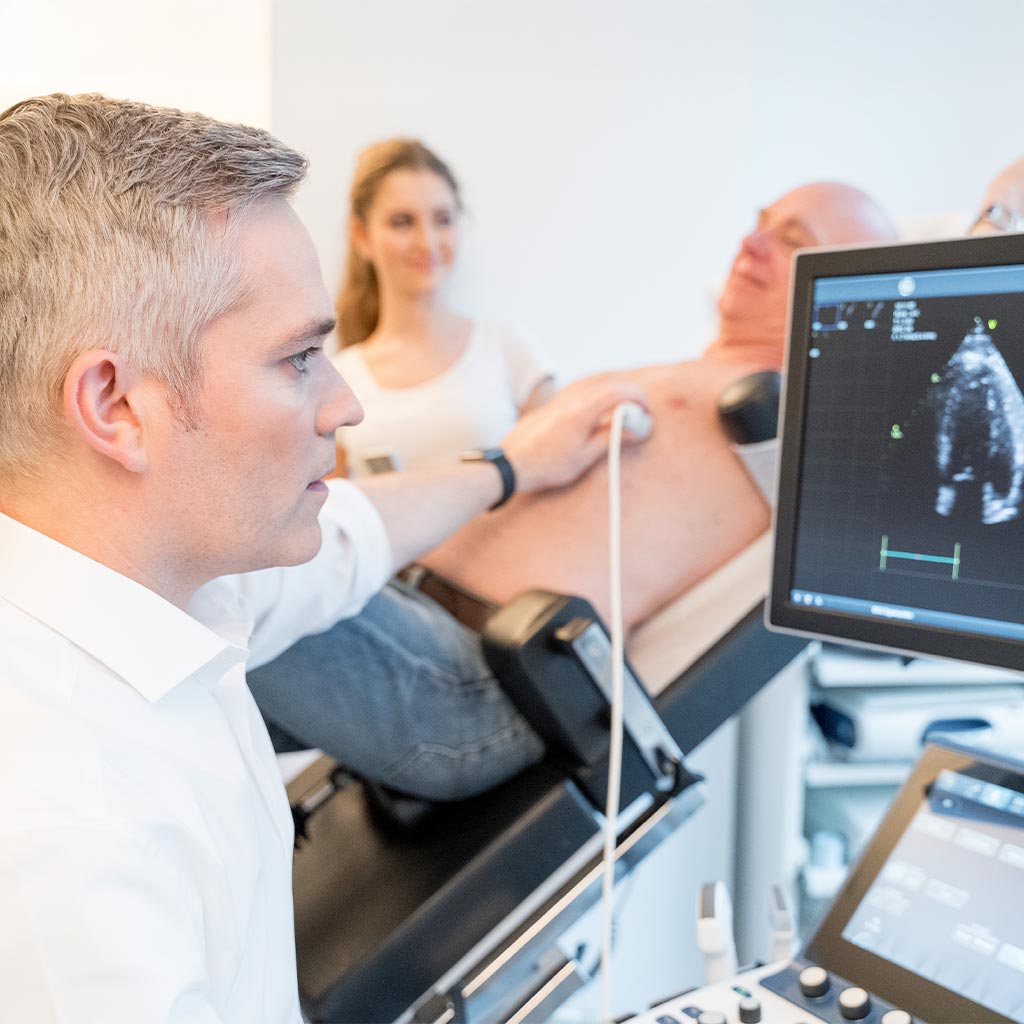Cardiological examinations in Munich
Thorough understanding, targeted treatment
The basis of any sound medical diagnosis is a precise understanding of your individual situation. That is why we take the time to carefully record your current complaints, any previous illnesses and your current medication.
In a personal consultation, we clarify together which examinations make sense - tailored to your symptoms and your questions. This results in a customised examination plan that is tailored to your needs and serves as a reliable basis for further treatment.
